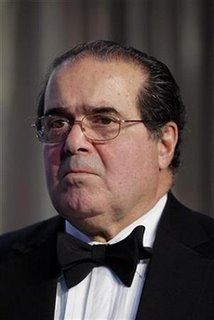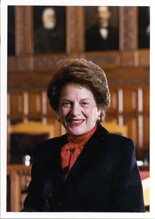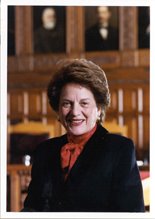 Some New York judges have taken aim at the law firms of legislators for cases pending in front of them, due to the failure of the legislature to give them a pay raise, according to the New York Post. New York’s judges here have not had a pay raise, even for cost of living, for nine years.
Some New York judges have taken aim at the law firms of legislators for cases pending in front of them, due to the failure of the legislature to give them a pay raise, according to the New York Post. New York’s judges here have not had a pay raise, even for cost of living, for nine years.
According to the Post, emails have circulated with titles like “How to Get Our Salary Adjustment,” and the e-mails have included a “blacklist” of 50 state legislators who are registered as attorneys and the firms where they are employed.
A prime target is Weitz & Luxenberg, with thousands of asbestos and other mass tort cases pending in New York’s judicial system, because Assembly Speaker Sheldon Silver is a partner at the firm and is blamed by many for the delay in passing legislation for the salary increase.
Particularly interesting is that some judges are recusing themselves from cases that involve the Speaker’s firm. This money quote comes from the Post article:
“I think the speaker is a slug,” said Cattaraugus County Judge Larry Himelein, a Democrat who said he couldn’t be fair to Silver’s firm. “The whole New York state political process is a joke.”
According to the article, “judges say the recusals are about avoiding any conflict of interest because of the ongoing pay dispute.”
But if the judges claim to be biased against the Speaker’s firm then, of course, the opposite must also be true: They will be forced to recuse themselves from any case where Wachtell Lipton is counsel, as that firm is representing Chief Judge Judith Kaye pro bono in her suit on behalf of the judiciary in favor of pay raises against Silver, Senate Majority Leader Bruno and Governor Patterson). (See: Wachtell and Judicial Ethical Violations in New York’s Judicial Pay Raise Suit?)
The pay raise issue will be no doubt be the source of additional litigation by savvy attorneys who don’t want judges sitting on their cases when Wachtell is also appearing in the case. This work slowdown by judges on Weitz & Luxenberg cases will be powerful evidence of bias in the judiciary for those firms involved, on both sides.
Addendum: Last week, the state’s Advisory Committee on Judicial Ethics issued this opinion that Chief Judge Kaye’s lawsuit on behalf of the judiciary does not require judges to recuse themselves when a legislator appears before them as counsel, or his/her firm, or a firm representing one of the parties, but that they may do so as a matter of individual conscience.
Regarding my post on Wachtell’s appearance, the advisory opinion states:
Regarding the appearance before a judge by a member of a law firm representing one of the parties in the Chief Judge’s litigation itself, we note again that the inquiring judges are not named parties in that lawsuit. Consequently, the law firms involved in that action neither represent those judges nor parties adverse to those judges. Accordingly, the Committee concludes that recusal is not required when a member of a law firm representing one of the parties appears (see Opinions 07-176; 01-24[Vol. XIX]).
The advisory opinion does not address the issue I had raised with respect to the substantial gift of pro bono services that was made, and accepted by Chief Judge Kaye, to the judiciary.
See also: Chief Judge Writes N.Y. Governor to Deny Work ‘Slowdown’ by State’s Judges (NY Law Journal via Law.com)
(hat tip, Overlawyered)



